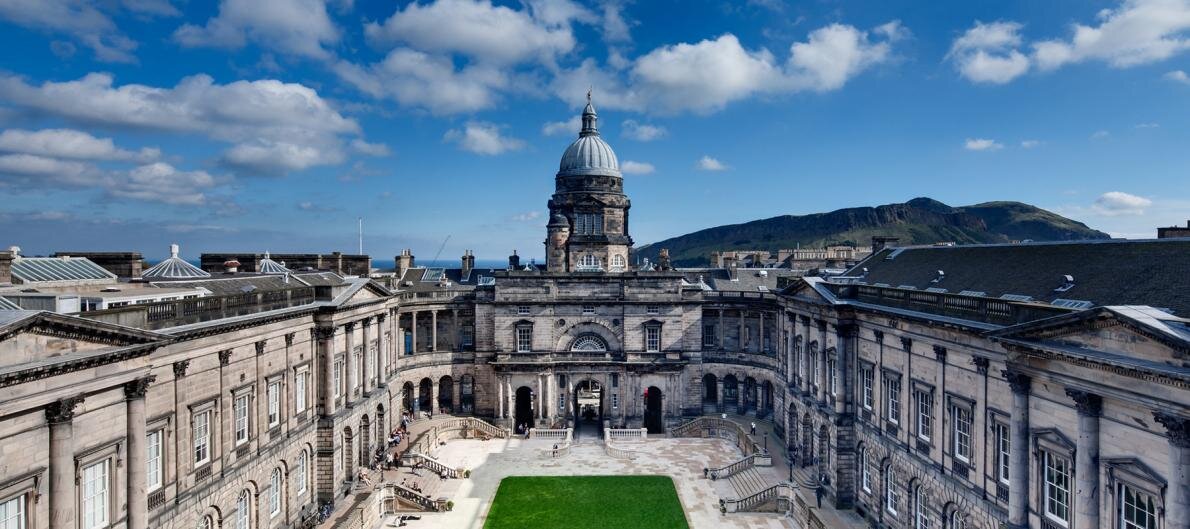University of Edinburgh, Institute for Applied Language Studies
University of Edinburgh
The University of Edinburgh is one of the UK's leading universities. It was founded in 1583 and has been attracting international students for over four centuries. In terms of the quality of its teaching and research, it is considered one of the leaders not only in the UK but in Europe and beyond. Edinburgh is also one of the UK's larger, more diverse universities, with a current student population of over 20,000 (roughly 13,000 undergraduates and 7,000 postgraduates) including students drawn from more than 100 different countries. Edinburgh is also a city-centre University, situated in the heart of what is widely regarded as one of the most attractive cities in Europe, the historic capital of Scotland. The city has often been voted the best in terms of quality of life in the UK and it has recently taken on a new dynamism from the creation of a Scottish Assembly in 1999.
Academic Study at Edinburgh
Edinburgh has three principal colleges embracing medicine and veterinary medicine, science and engineering, and arts, education, law, divinity, music and social sciences. Its degree offerings include around 120 different subject areas and specialisation is offered in over 300 different subjects and subject combinations. Its postgraduate provision includes research degrees in a vast range of subjects and 'taught' degrees in around 150 different programmes. Some 95% of the its staff work in disciplines which have been rated in the top two grades of the UK government's research assessment exercise. It is without a doubt one of the principal research institutes in the country.
The University offers a wide range of courses and some of its Schools include the following:
School of English
Management School
School of History
School of Asian Studies
School of Law
School of Life Sciences
School of Engineering
School of Scottish Studies
Divinity School of Theoretical and Applied Linguistics
Division of Informatics
School of Asian and Modern European Languages
Music
School of Social and Political Studies
Centre for Social Sciences
Division of Biological Sciences
Centre for Sport and Exercise
Division of Molecular and Clinical Medicine
For a complete list of all offerings, please use the link at the bottom of this page.
Study Abroad (JYA) Programme
Edinburgh was one of the first universities in the UK to offer an extensive programme for those graduating elsewhere who wished to spend up to one year at the University. Some transfer their 'credit' back home. These very popular programmes are open to students on exchanges, including several with Japanese partners. But they are also intended for students who simply wish to undertake the study independently. The programmes currently cover the British academic year (from October to June), though there are plans to offer the programme in semesters in future. Students are fully integrated into regular university graduating classes and into the life of the University.
EFL Programme
Edinburgh has a renowned Institute for Applied Language Studies (IALS), which teaches English to non-native speakers and other languages to English speakers. It offers English for Special Purposes courses (such as English for Business, for Medicine, for Law or for Academic Purposes), a full range of courses for Teachers of English (both short and long-term) and general and specialist English improvement courses at several levels. The English courses are from three weeks up to one year in duration and may be begun at a number of different points in the year.
Accommodation
All single students are guaranteed an offer of a place in University-provided accommodation (which is of a high standard but subsidised and therefore generally cheaper than private sector places). Some places are available for married students and those with families and, though not guaranteed for all, assistance is given to those seeking to find accommodation privately. Most students have a choice of dormitory-type accommodation ('halls of residence' - usually with food provided), apartments ('flats') and arrangements resembling home-stays ('lodgings' often abbreviated to 'digs').

